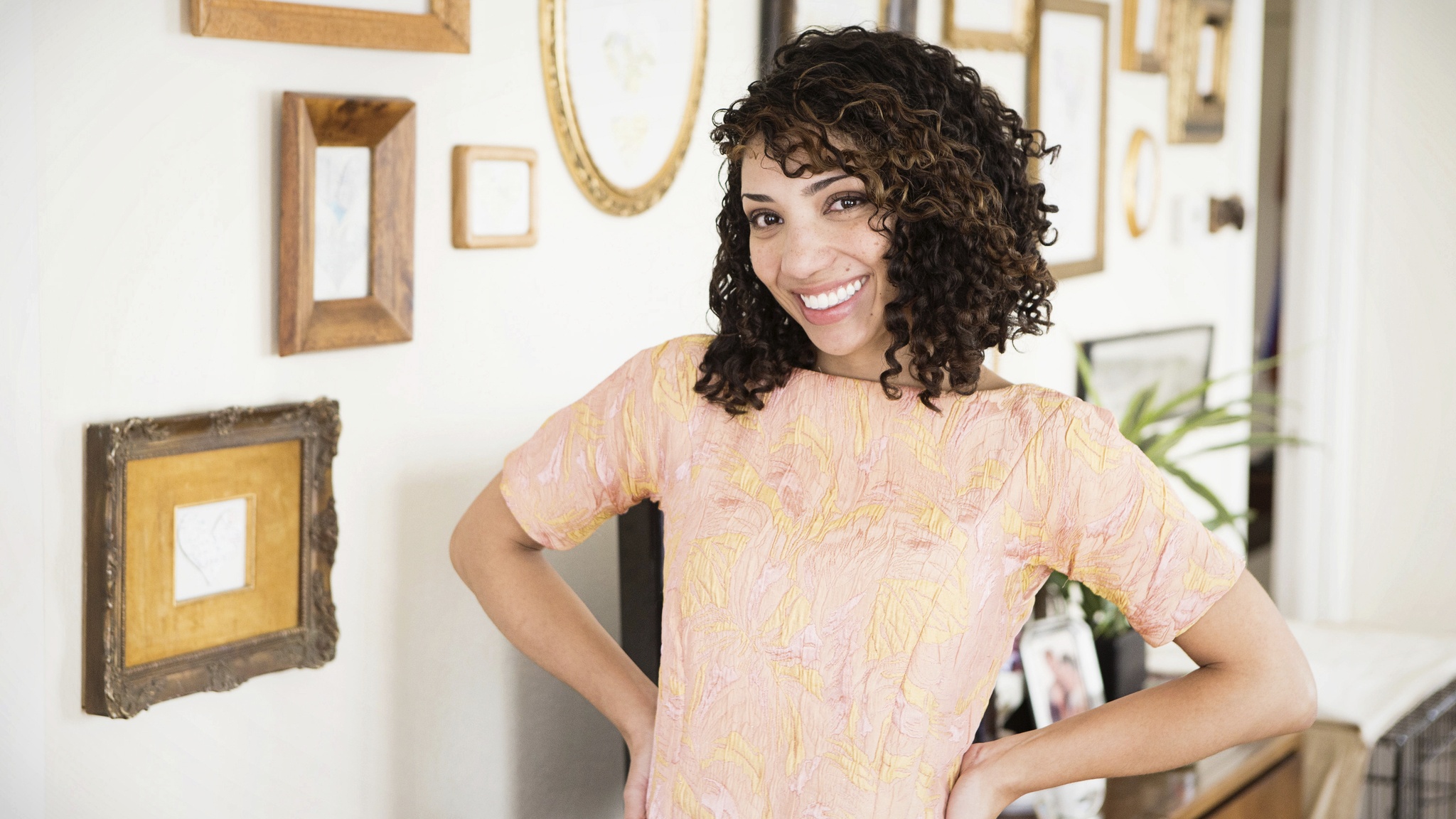Jasika Nicole, the actress best known for her roles on The Good Doctor, Scandal, Underground and now Punky Brewster, appeared on Blavity's Facebook Live to discuss coming out, holding loved ones accountable, being Black and queer in Hollywood and the repressive nature of beauty standards.
The actress said her first inkling that she might be queer began as a teenager. But she assumed her identity could only be monolithic, unsure of how to intersect being both queer and Black.
“I had a conversation with myself when I was a teenager and I said to myself, oh my gosh, you might like girls in a way that other girls don’t like girls but you’re also Black,” Nicole said. “I literally did not know how to be both of those things because I had never seen it before."
On Coming Out
Nicole said that living in New York City, a vibrant oasis of culture and acceptance, helped her to feel comfortable stepping into her queerness. She said her journey toward fully coming out was a long one but it ultimately led her to a space of peace and joy.
“It felt like it was a long time coming but at the same time, once it happened, it was like how can I ever go back?” Nicole said. “Once you get a little taste of how good your life can be, it’s really hard to try and step backwards. Happiness is for everybody, everybody deserves to find it.”
Nicole stated that she was in her twenties when she decided that dating women is something that she wants to do and in doing so, realized that this was something that she had wanted to do for a long time.
"When I was in my early twenties and I realized, 'oh my goodness, I want to go on a date with a woman, I want to have a romantic relationship and see if this is fun,' if I like it; if I connect to it and I immediately did," she said. "It was almost like all those years that I wasn't even really having the conversation with myself, there was a lot of stuff that was still brewing underneath me whereby the time I came out, I was like 'oh, it's on! I wasted a bunch of years not doing this, we can just go forward.'"
When it comes to being queer in Hollywood, the actress said she's intentional about the roles she takes on when it comes to depicting characters of the LGBTQ+ community.
"I do say no to roles that do not suit me, do not suit my own belief systems, my own morals," the 40-year-old mentioned. "So I won't go in for, let's say a queer role who doesn't have a name who is some kind of weird stereotype of a lesbian with no backstory. I'm like, 'no, I'm not going to do that.'"
On Being Black And Queer
Oftentimes, when it comes to Blackness, society has a hard time acknowledging the identities that intersect with it. Hollywood is no different. When asked why she feels it's important to highlight the intersection between Blackness and queerness, Nicole stated that the restriction of one's identity to something singular can be a hindrance.
"Most of us have some kind of intersecting identities," she said. "When you try and fit somebody into a box like that, you're ignoring all the other parts of what makes them who they are and what they've experienced in this world and what their history is."
When it comes to acknowledging differences, Nicole said intersectionality needs to be celebrated.
"I think it's really important to celebrate all the ways that we come together to create community and the ways that make us different than the other people that are around us," she said. "I love being in queer spaces but when they're all white, it can feel a little bit isolating."
Her Father’s Reaction And Accountability
The Punky Brewster actress admits that she was surrounded by love and acceptance when she came out but her father didn’t take it well. The Alabama native says that her father eventually came around.
“My dad did not take it well and he didn’t talk to me for months,” Nicole said. “He was able to not only rethink his understanding of what queerness was and what it meant to him but he was also able to apologize to me.”
“I think it’s really important for people to say, 'you know what? I messed up,'” Nicole said. “I think it is really important to normalize those conversations and say sometimes people mess up but it doesn’t mean that they can’t get better, educate themselves and learn.”
On Not Shrinking Yourself Within The Confines Of Patriarchy
Nicole also touched on beauty standards and how they can become all-consuming.
"I feel that for a lot of women, there is this constant conversation that we're having in our inner-selves that's kind of focused on our insecurities…there is just too much else going on in the world that is worthy of our attention," she said. "And again, I think that is a way that the patriarchy has forced women to kind of settle into these subservient roles where we're always focused on these other things instead of 'how do I become the president of that company?'"
"Whatever your path in life is it doesn't have to be centered in a value system that we didn't create," she continued. "We didn't ask for this."
